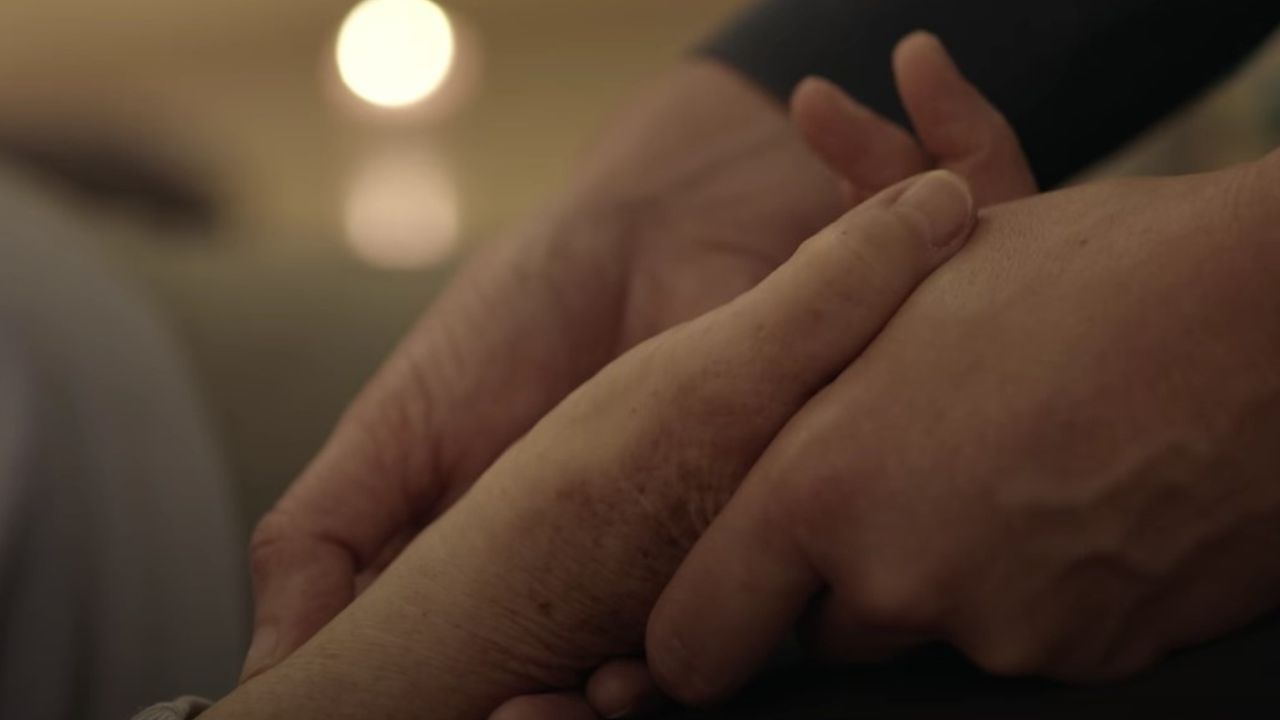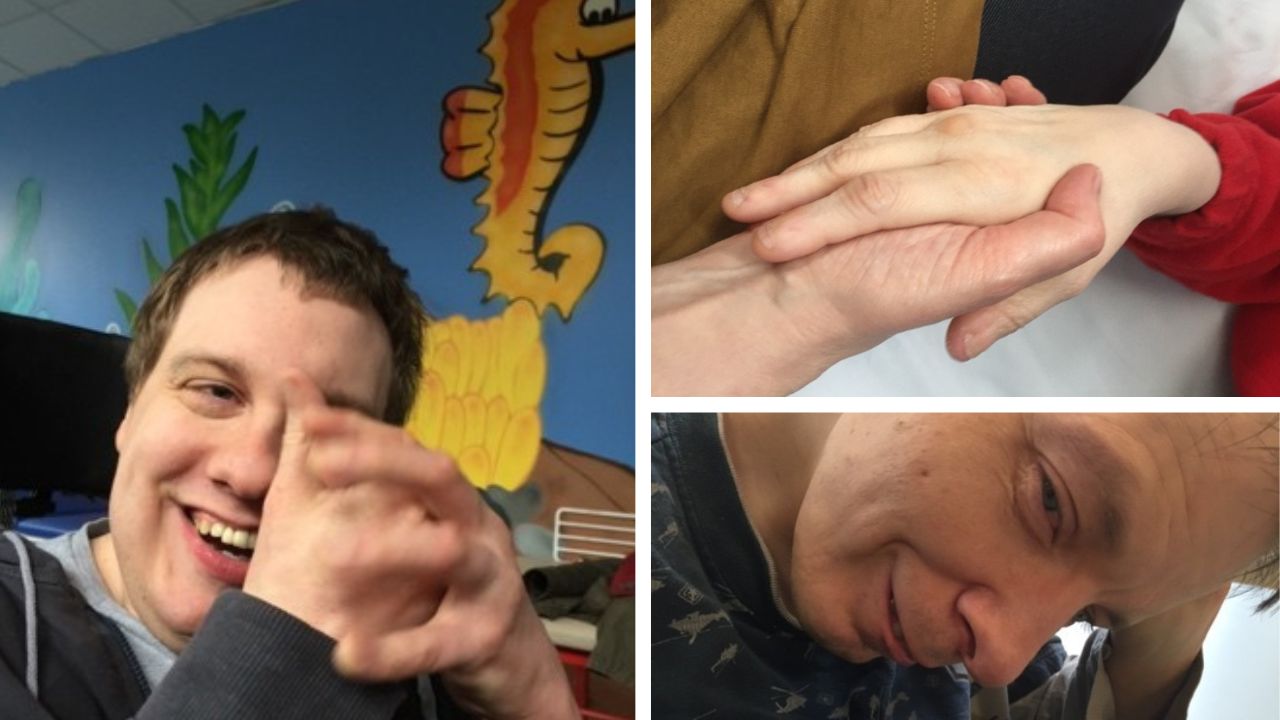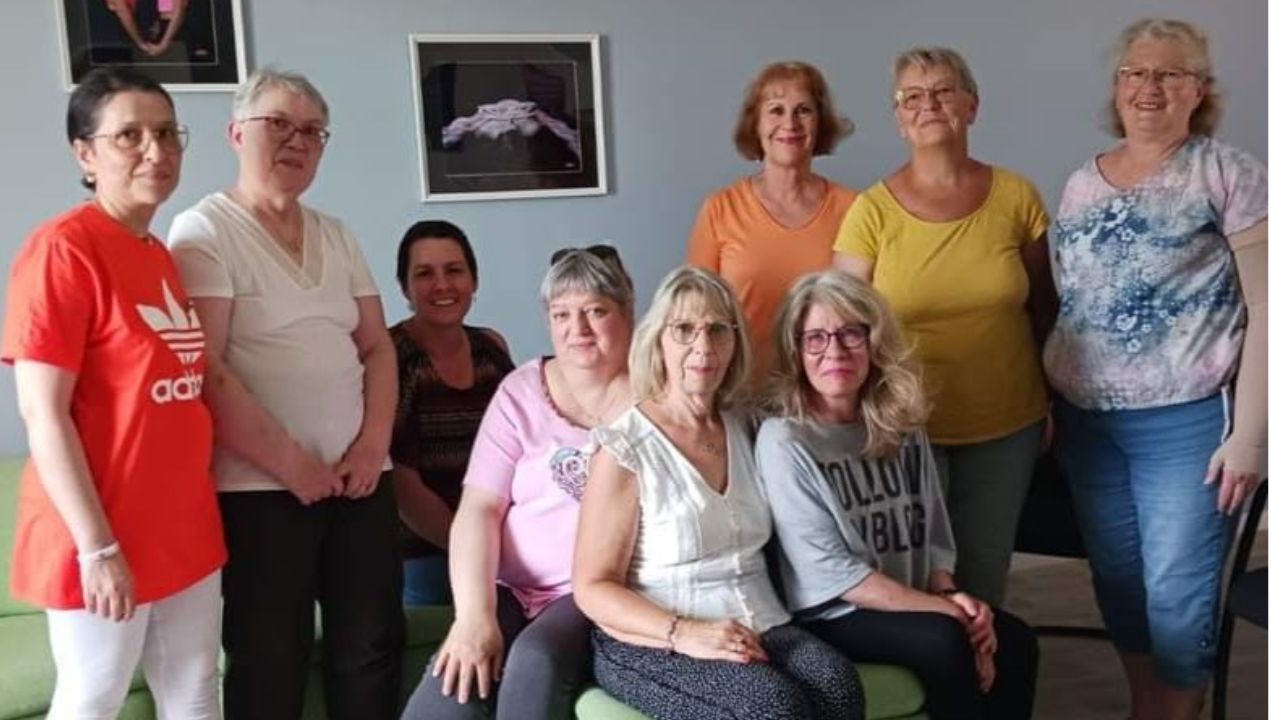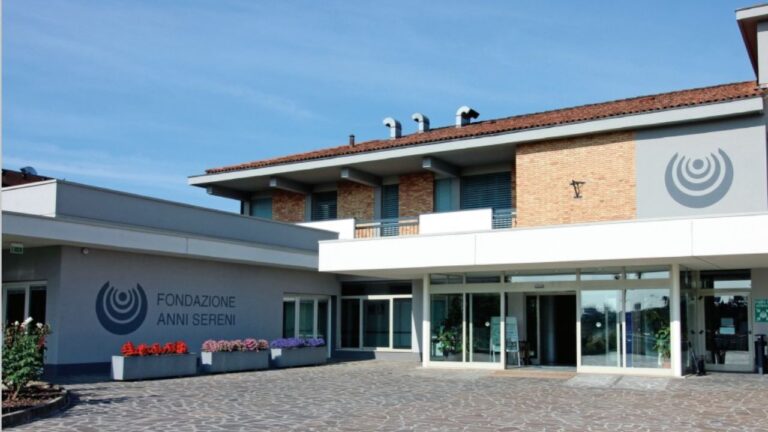
Dementia is a chronic degenerative disease, characterized by a more or less rapid progression of cognitive deficits, behavioral disorders and functional impairment with loss of autonomy and self-sufficiency, varying degrees of disability and consequent dependence on others.
The primary goal of this project was to improve the quality of life for Alzheimer’s sufferers by developing the highest possible degree of psychological and physical well-being by reducing behavioral disorders and maintaining the highest possible degree of relational and motor function.
The project also aimed to assess whether Touch Therapy and Aromatherapy have positive effects on the reduction of behavioral disorders, particularly restlessness and vocalization in Alzheimer’s patients, thus assessing whether Touch Therapy and Aromatherapy can be given a supportive function alongside conventional drug therapy.
Over the past 20 years, considerable progress has been made in understanding the mechanisms that regulate the transmission of altered neurotransmitters in Alzheimer’s disease. Particulary in the area of non-pharmacological care, interventions aimed at the sick person (mainly cognitive and/or psychosocial stimulation), his or her living environment (physical and relational)- and caregivers and practitioners involved in care have gradually been articulated.
These non-pharmacological interventions seem to be supported by empirical, clinical and scientific evidence, which highlights on the one hand the endurance of neuronal plasticity and compensatory capacities even in Alzheimer’s Disease (Stern et al, Neurology 2000), as well as the ability to learn new material under conditions of “sustained” and “facilitated” learning (Clare et al, Neuropsychology 2002; Hawley et Cherry, Behavior Modifcation 2004).
In the Spotlight
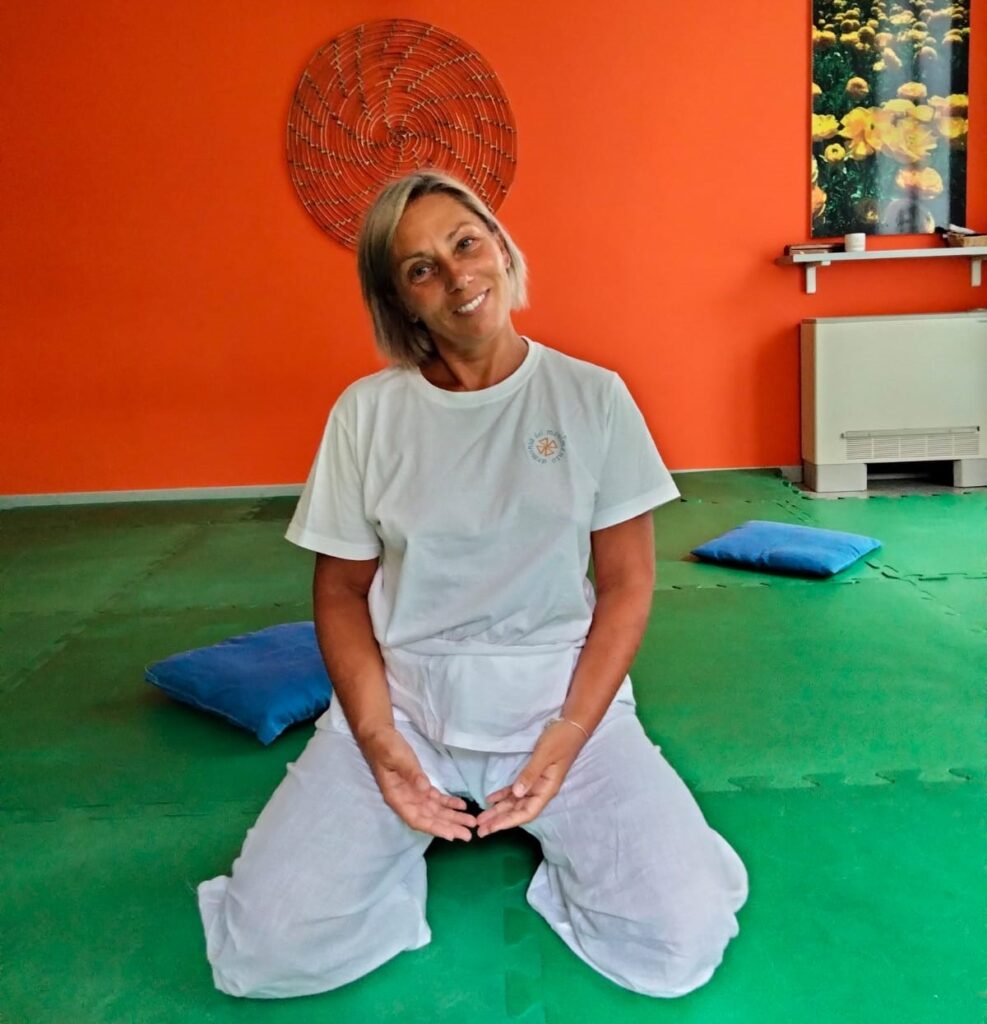
Laura Crespi
laura.crespi1602@gmail.com
+39 333 3153836
A graduate in Theoretical Philosophy from the University of Milan and professional journalist, Laura has been involved in bionatural disciplines since 2012: Watsu (diploma from Watsu Italia); Shiatsu (diploma from Shambala Shiatsu School); Philosomatic massage operator (diploma from the School of Philosomatics); a Lymphatic Drainage (diploma from the Arde Institute in Milan). Since 2019, I have been studying Traditional Chinese Medicine.
She has been an instructor of ADM Method Postural Gymnastics (diploma from Ananda Center) since 2022.
Since 2018, Laura has been registered as a professional practitioner with the Italian Shiatsu Federation and on the register of DBN practitioners of the Lombardy Region.
She led the project “Watsu for Women,” assisted by the Anti-Violence Center of Treviglio and participated in the Alzheimer Café in Cormano with other Shiatsu colleagues from Shambala, Milan.
Foreword
The Shiatsu for Severe Alzheimer’s Sufferers project was conducted between September and December 2019, at the Alzheimer’s nucleus of the RSA Fondazione Anni Sereni in Treviglio, as part of an integrated medicine project, in collaboration with the department’s health care team and under the supervision of the geriatrician in charge of the NA.
Seven patients received 30-40 minute weekly sessions. The treatments were evaluated using two scientific tests selected by the referring physician.
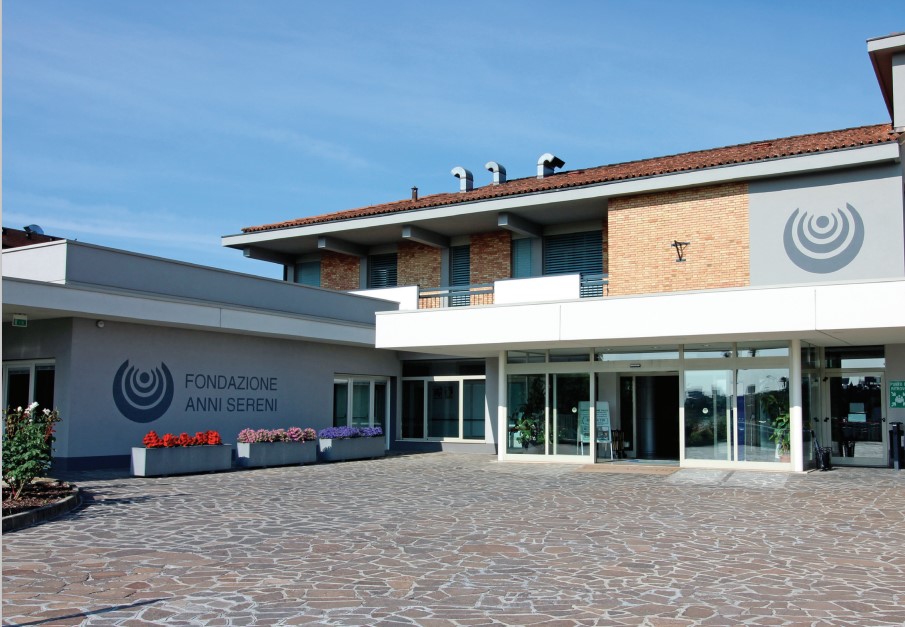

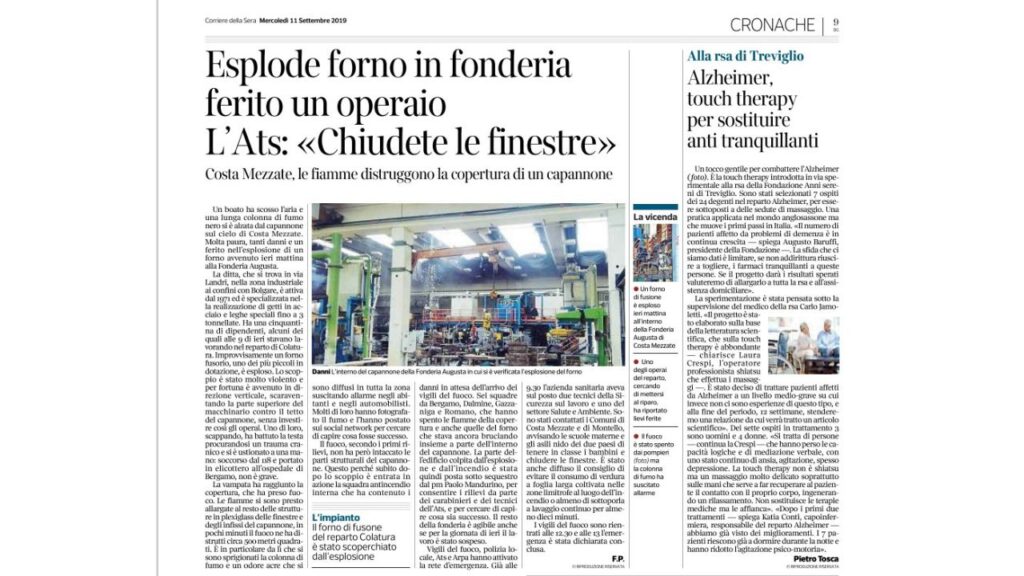
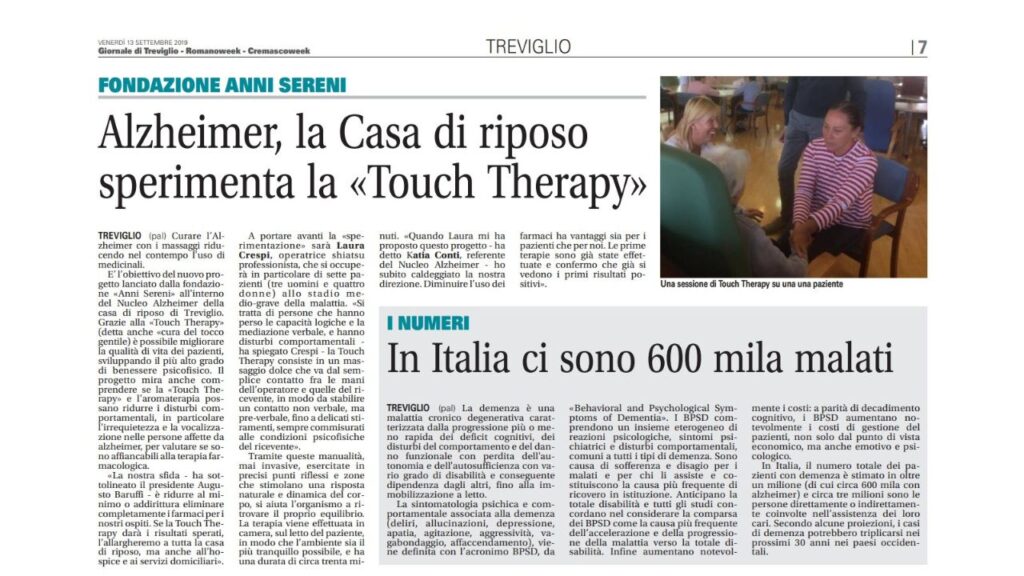
Project Details
For five of the patients, the treatments were carried out in a quiet and isolated room in the Alzheimer’s unit, so as to ensure as much peace and quiet as possible. The recipients were dressed in comfortable clothing, lying on a bed and supported by special pillows.
In two cases, given the particular restlessness and aberrant motor activity of the recipients, it was decided to accommodate their needs by performing the treatments in an armchair or while walking around the Alzheimer’s core facility, so as to make them as comfortable as possible.
The treatments consisted of gentle pressure, using the Touch Therapy technique over the entire body, from the feet to the head, so as to bring attention to each part of the body and its boundaries, in order to regain possession of it through a positive experience.
Prolonged contact was maintained at specific energy points and zones, wrists, ankles and back, for a calming effect aimed at reducing behavioral disturbances typical of the condition, especially restlessness. Specific points and energy zones were also stimulated to promote vital physiological functions, depending on their individual needs: breathing, gastrointestinal function and lymphatic circulation etc.
A blend of Melissa and Lavender essential oils were used for a calming effect on the central nervous system. This blend of oils was diffused in the environment and at the same time applied to specific energy points and zones.
The results showed a reduction of the anxiety component and wandering typical of Alzheimer’s disease, in a relatively short period of time (three months). The methods and results were explained in a report delivered to the facility with the patients’ individual records.
The RSA Foundation evaluated the experience positively and the board of directors approved the next step of the project, aimed at including other residents at the facility, but Corona restrictions prevented these plans from being implemented.
The primary goal of this project was to improve the quality of life for Alzheimer’s sufferers by developing the highest possible degree of psychological and physical well-being.
Laura Crespi
